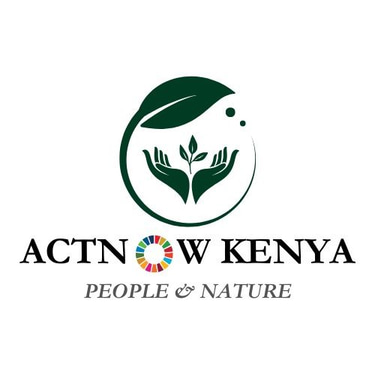ACTNOW KENYA
"Action for Climate Transformation with Nature Observation and Wellbeing in KENYA" inspired by the United Nations ActNow Campaign.
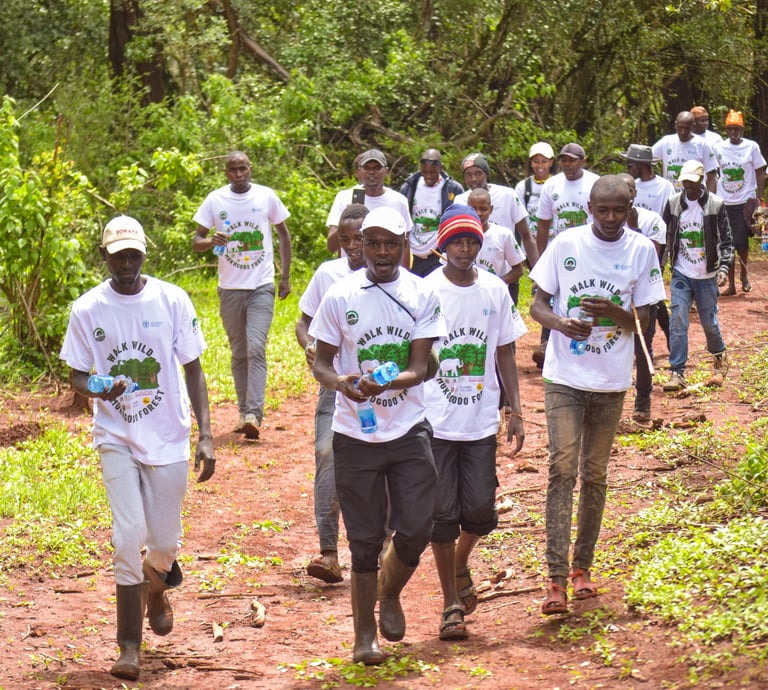

It is our collective and individual responsibility … to preserve and tend to the world in which we all live.”
—Dalai Lama
Sustainable Communities, thriving environment
We aim to foster harmony between people and nature, empower underserved groups through just policies and climate adaptation, and harness ancestral knowledge for sustainable solutions to environmental injustices.


Our Mission
Our Vision
A world where coexistence thrives, and underserved communities lead sustainable development and climate action.
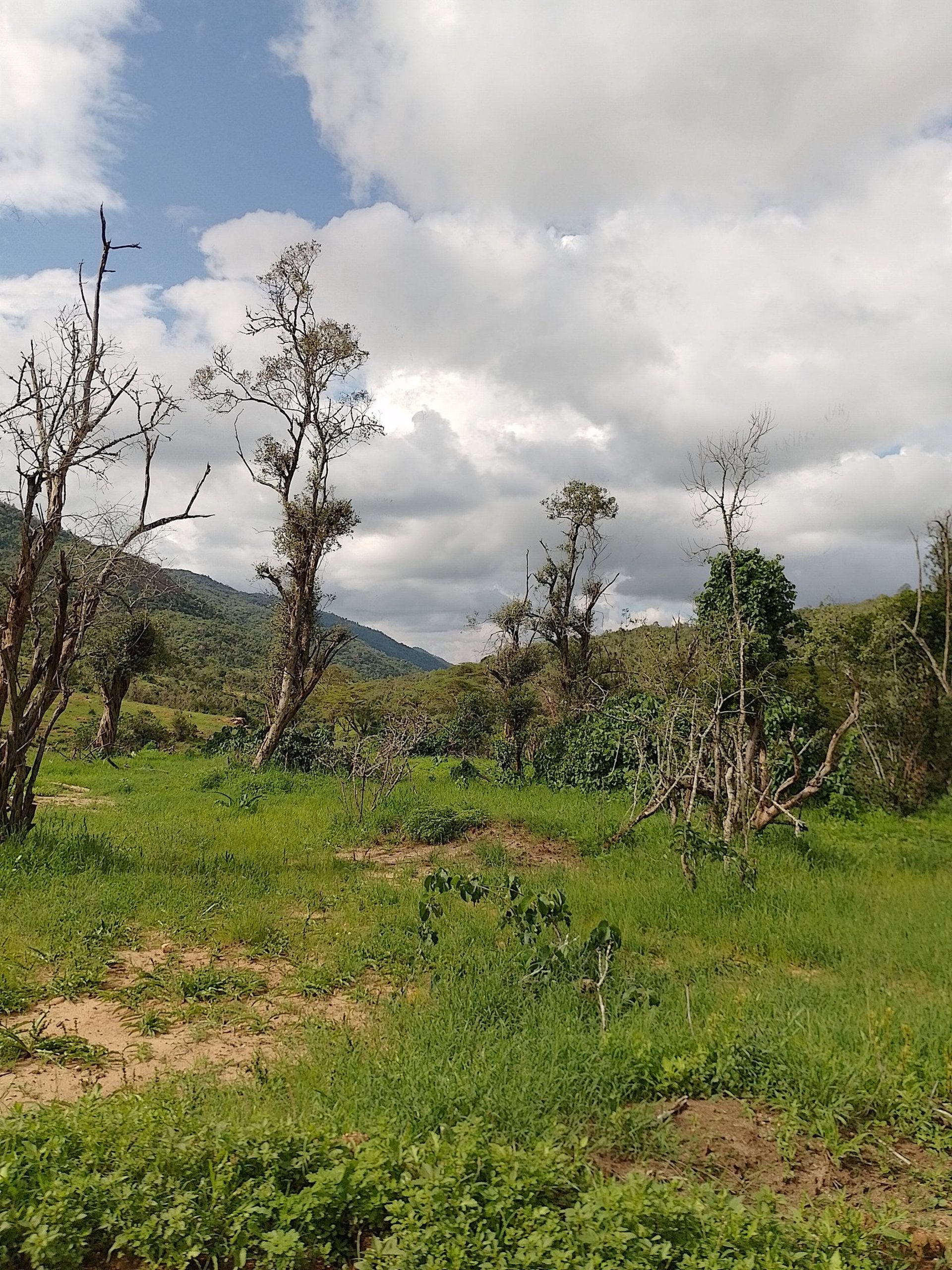
The Harsh Reality of Climate Change in Kenya: Key Statistics
More than 80% of the Kenya’s landmass is arid and semi-arid land (ASAL) with poor infrastructure, and other developmental challenges.
The annual forest cover loss within Mukogodo is estimated to be 383 ha.
Over 44,000 species are threatened with extinction.
An estimated 45.8 per 100,000 deaths in Africa attributed to WASH diseases.
2.6m livestock deaths reported due to prolonged drought in Kenya between 2020 and 2023.
See how we are making impact in the communities we serve
Since 2022...
10000+
1
Clean water advocacy campaign in Laikipia County that resulted in annual cleans up along Nanyuki River.
Trees planted across the Mukogodo Ecosystem.


20+
Kids receiving training on Sustainable Development Goals majorly on Climate Action and Environmental Conservation in Mukogodo West Ward - Laikipia North.
Our Programs
For the past three years, ACTNOW KENYA has implemented participatory programs in northern Kenya around its strategic areas; climate action, environmental conservation, food security and access to clean water. Dive into our programs section covering a range of community events, tree planting and food security. These programs are segments of ACTNOW KENYA SUSTAINABILITY MAP 2026-2030.
The Community Summit - A youth-centered climate dialogue and action space
77% of youth in pastoral communities’ report limited access to traditional knowledge on sustainable grazing, weather forecasting, and the use of medicinal plants (The Indigenous Women and Climate Change Coalition, 2022). This gap hinders active participation of young people from pastoralists and marginalized communities in climate justice and sustainable development. The Community Summit serves as a youth centered space to dialogues climate action, led natural resources governance and cultivate environmental leadership.
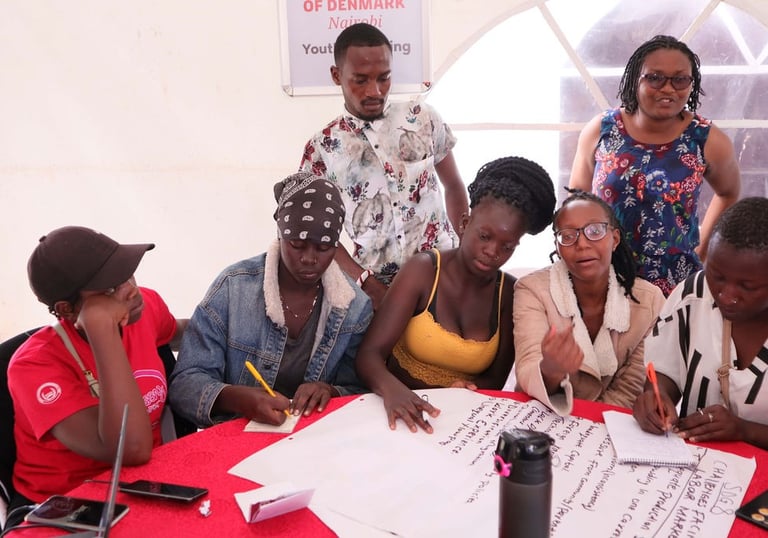

Nkishon Program - Building Resilience in Times of Climatic Hardships
School feeding program continues to face numerous gaps in rural and marginal parts of Northern Kenya. The program often faces nutritional insufficiency, and inconsistent supply of food to schools in remote areas. With generous support from EU International Partnerships and Global Youth Mobilization - GYM, this long-term program is supplementing school feeding program by investing in school vegetable gardens and nutrition education in Laikipia North Constituency
A school based project delivering interactive sessions, nature walks, and knowledge on sustainable development goals (UN SDGs) for kid in the Mukogodo Ecosystem. Our mission is to develop a sustainability conscious generation as young as 5 years of age, slowly impacting the broader community.
My SDG Kid Initiative - Raising of SDG Heroes
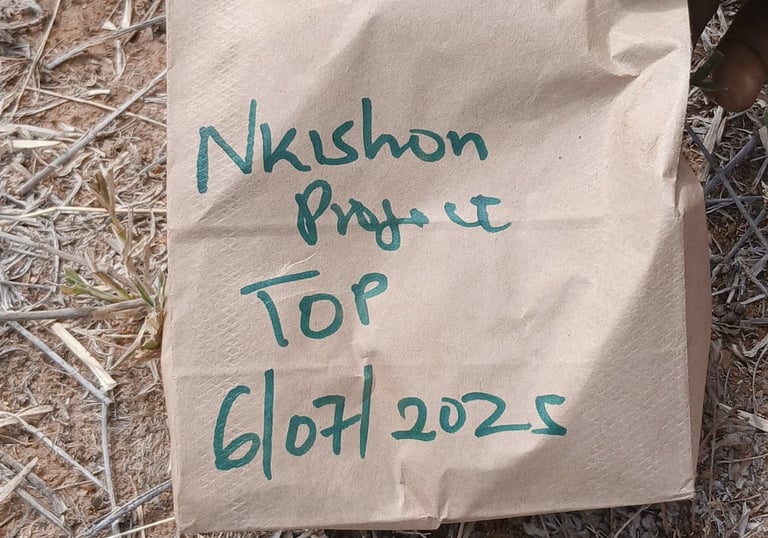



The Mukogodo Restoration Network - A community-led restoration of the Mukogodo Ecosystem through indigenous people
Every year, the Mukogodo Forest, looses an estimated 383 ha of forest cover. This represent the shrinking wildlife corridor for buffalos, African elephants, birds and insects, and loss of livelihoods for the Yaaku community that have depended on this forest for honey and cultural values. The Mukogodo Restoration Network is an indigenous-led governance and restoration of the Mukogodo Ecosystem.


Community Events
We believe every community deserves the power to shape its own future through community-led solutions. Our work is about more than tree planting or cleanup campaigns. It’s about inspiring, equipping, and empowering young people from marginalized communities to lead bold, lasting climate solutions because when young people rise, so does the land they stand on. ACTNOW KENYA engages in collective efforts to deliver lasting impact and transformation to millions of people in these communities and beyond. Below are a few of community events that provides us with an opportunity to work with diverse stakeholders to empower communities, and restore degraded landscapes.
The Northern Kenya Half Marathon
The Northern Kenya Half Marathon is a community event initiated by Northern Kenya Half Marathon bringing together community members, young athletes, schools and conservation groups to raise awareness on environmental conservation, restore degraded landscapes and empower talents through sports. This annual event happens in may attracting key stakeholders including the private sector across Northern Kenya.
650+
1500
community members reached
young athletes racing for conservation awareness
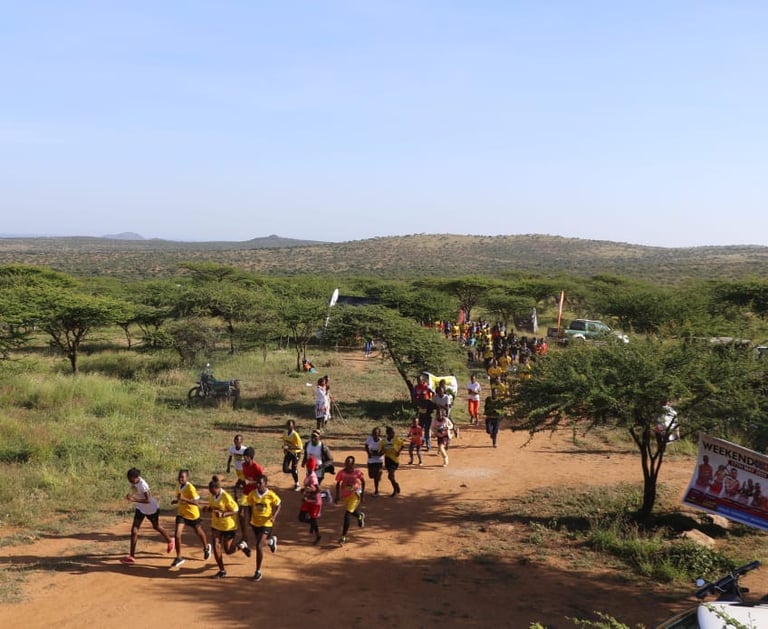

The Mukogodo Forest Walk Wild Event
Each year, the Mukogodo Forest loses an estimated 383 hectares of tree cover—a trend that directly undermines the social, ecological, and economic fabric of the communities that depend on it. The Yaaku and other local communities now face a perfect storm of challenges: climate change, weakening traditional livelihoods, and growing land-use pressures. Encroachment and permanent settlements within the forest boundaries are on the rise, placing immense strain on the fragile ecosystem. This multi-stakeholder program is an annual event between August and November that seeks to promote environmental education, lead reforestation around the forest and empower local communities.
10000+
4
community lands involved in continuous management of the Mukogodo Forest
indigenous trees planted since 2023
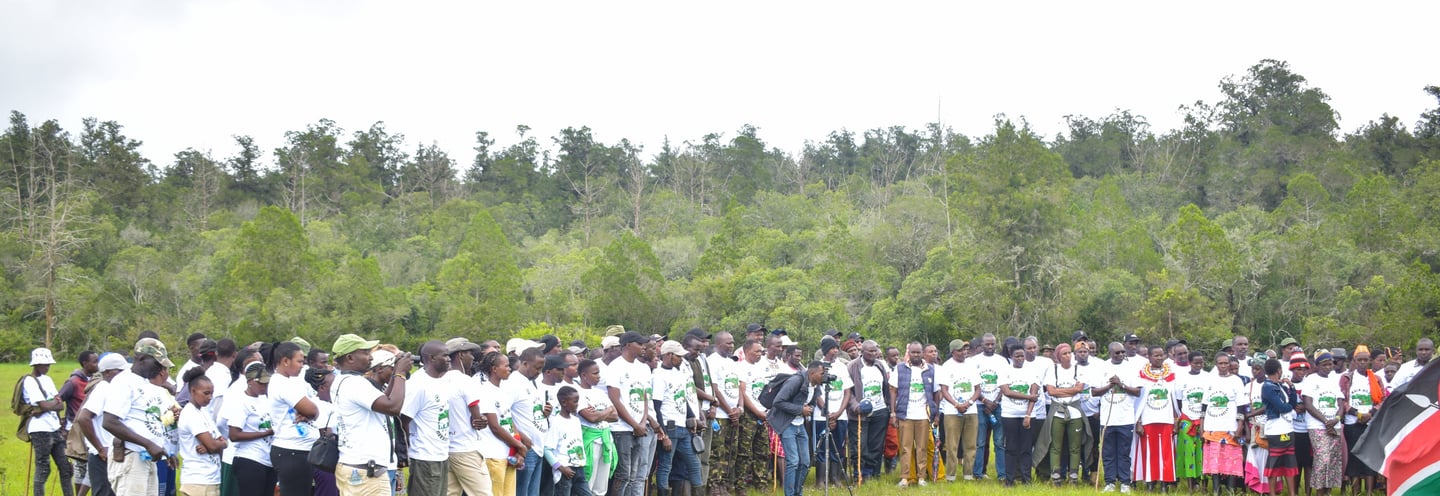

Sustainable solutions are locally-led
We partner with schools, community elders and smallholder farmers – particularly women farmers, school conservation clubs and small scale youth groups– to promote climate action, conservation, sustainable agriculture, water management and local indigenous knowledge. We do this through activism, community capacity development and resources mobilization.


Laikipia North at a glance
311,496ha
40.3%
of land in Laikipia is owned by 48 Large-scale white settler ranches with ongoing land encroachment and grabbing
Restoration opportunities within the Mukogodo ecosystem
150K+
estimated livestock deaths in Laikipia county between 2020 and 2023 affecting more than hundred thousand people
70K+
indigenous people predominantly composed of pastoralist communities, such as the Samburu and Maasai
Related Stories
Meet the generous partners
supporting our work and making change possible.
Because no matter who we are or where we come from, we’re all entitled to the basic human rights of clean air to breathe, clean water to drink, and healthy land to call home.
- Martin Luther King III

Contact Us
Reach out to us for collaboration and support in sustainability.
ACTNOW KENYA is a registered community based organization under the Income Tax Act (Cap 470), Section 13(2) of Kenya. Your donations are tax exempt. Gift are deductible subject to allowable country laws.
© 2025. All rights reserved.
